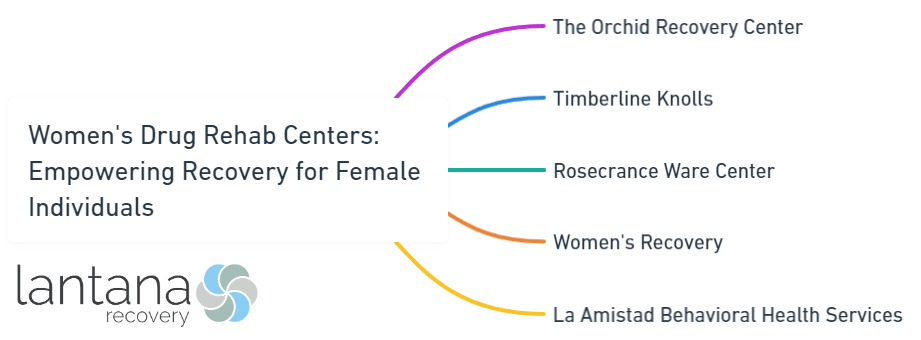Women’s drug rehab centers play a crucial role in empowering recovery for female individuals struggling with substance abuse. These centers offer specialized treatment programs that are designed to address the unique needs and challenges faced by women in their journey towards recovery. Gender-specific treatment is of paramount importance in drug rehabilitation as it recognizes the distinct biological, psychological, and social factors that impact women’s addiction experiences.
To understand the significance of a gender-specific approach, it is essential to recognize that women have different pathways into addiction, often rooted in trauma and co-occurring mental health disorders. Substance abuse in women is frequently influenced by traumatic experiences, and addressing this underlying trauma is vital for effective recovery. Women’s drug rehab centers provide a safe and supportive environment where these issues can be addressed through therapy, counseling, and trauma-informed care.
Furthermore, women’s drug rehab centers offer a range of services and programs tailored to meet the specific needs of female individuals. These include individualized treatment plans, therapy and counseling designed for women, supportive group therapy, and education and skill-building programs. By addressing women’s unique needs and providing comprehensive care, these centers increase the chances of successful recovery for female individuals.
Creating a safe and nurturing environment is a key aspect of women’s drug rehab centers. The presence of female staff members and the formation of supportive peer relationships among women contribute to a sense of understanding, trust, and solidarity. providing trauma-informed care ensures that the rehabilitation process is sensitive to the experiences of trauma that many women may have endured.
The benefits and success rates of women’s drug rehab centers are noteworthy. By offering specialized treatment, addressing underlying trauma and mental health concerns, and providing a supportive and empowering environment, these centers have seen positive outcomes for many female individuals in recovery. Empowering women to overcome addiction and reclaim their lives is the primary focus of women’s drug rehab centers.

The Importance of Gender-Specific Treatment
The significance of gender-specific treatment in drug rehab centers cannot be emphasized enough. A better comprehension of women and men’s distinct experiences, needs, and challenges in addiction and recovery is achieved through gender-specific treatment programs. This understanding leads to more effective approaches that take into account these unique factors.
Creating an environment of safety and trust is essential in gender-specific treatment programs as it enables women to feel more comfortable sharing their experiences, emotions, and vulnerabilities with others who have faced similar situations. This sense of safety and trust is crucial for their healing and recovery.
Gender-specific treatment programs also address specific issues that women often encounter, such as trauma, body image issues, or the responsibilities of caregiving. By supporting and addressing these specific concerns, these programs increase the likelihood of long-term success in overcoming addiction.
Furthermore, connecting with peers who have had similar experiences plays a vital role in recovery. Gender-specific treatment programs provide an opportunity for women to form strong bonds and support networks with their peers, thus enhancing their chances of maintaining sobriety.
Lastly, gender-specific treatment programs focus on promoting holistic well-being by catering to the unique physical, emotional, and psychological needs of women. This comprehensive approach supports long-lasting recovery and overall well-being.
If you are seeking addiction treatment, it is crucial to consider the importance of gender-specific treatment. It can make a significant difference in your recovery journey, providing tailored support and a deeper understanding of your specific needs.
Why Gender-Specific Approach is Essential in Drug Rehabilitation?
A gender-specific approach is essential in drug rehabilitation due to the unique needs and experiences faced by women in recovery. Here are several reasons why a gender-specific approach is crucial in drug rehabilitation:
-
Trauma and substance abuse: Women are more likely to have experienced traumatic events, such as physical or sexual abuse, which can contribute to substance abuse. A gender-specific approach allows women to address and process these traumas and their connection to substance abuse.
-
Co-occurring mental health disorders: Women often have higher rates of co-occurring mental health disorders, such as depression or anxiety, alongside substance abuse. A gender-specific approach provides specialized treatment that addresses both substance abuse and underlying mental health issues.
-
Supportive peer relationships: Women benefit from building supportive relationships with other women who have similar experiences and challenges. A gender-specific approach fosters an environment where women can create connections, share their stories, and support each other’s recovery journeys.
-
Trauma-informed care: Women-specific drug rehab centers often employ staff trained to provide trauma-informed care. This approach recognizes the impact of trauma on women and incorporates strategies to promote safety, trust, and empowerment throughout the rehabilitation process.
By implementing a gender-specific approach in drug rehabilitation, women can receive tailored and comprehensive care that addresses their unique needs, promotes healing from trauma, and increases the likelihood of successful recovery.
Pro-tip: When seeking a drug rehab center, consider the importance of a gender-specific approach. Look for facilities that offer specialized programs and services for women, as well as a supportive and empowering environment that aligns with your individual needs and goals.

Understanding the Unique Needs of Women in Recovery
Recovering from substance abuse is a complex journey, especially for women. In this section, we delve into the unique needs of women in recovery. We explore the deep-rooted connection between substance abuse and trauma in women, as well as the crucial importance of addressing co-occurring mental health disorders. With eye-opening insights and empowering strategies, we aim to shine a light on the specific challenges that women face on their path to recovery. Let’s embark on this journey together and empower female individuals to reclaim their lives.
The Connection Between Substance Abuse and Trauma in Women
The connection between substance abuse and trauma in women is significant for understanding and addressing their recovery needs. Numerous studies have shown a strong link between trauma and substance abuse in women. Traumatic experiences, like physical or sexual abuse, domestic violence, or loss of a loved one, can lead to the development of substance abuse as a coping mechanism.
Research has revealed that women are more likely than men to experience trauma, and they are also more likely to develop substance abuse disorders. In fact, studies suggest that up to 80% of women seeking treatment for substance abuse have experienced trauma.
When women experience trauma, they may turn to drugs or alcohol to numb their emotional pain or alleviate symptoms of anxiety or depression. Substance abuse can temporarily provide relief, but it often leads to addiction and further trauma.
Understanding the connection between substance abuse and trauma is crucial for developing effective treatment approaches for women. Women’s drug rehab centers specifically address this connection by offering trauma-informed care. This approach recognizes that trauma can deeply impact a woman’s recovery journey and aims to create a safe and supportive environment that promotes healing and growth.
By incorporating evidence-based therapies like trauma-focused cognitive-behavioral therapy, eye movement desensitization and reprocessing (EMDR), and group therapy, women’s drug rehab centers provide specialized care that addresses both substance abuse and trauma.
Emily, a survivor of domestic violence, turned to alcohol to cope with the trauma she had experienced. However, her substance abuse only amplified her feelings of fear and hopelessness. It wasn’t until she entered a women’s drug rehab center that she received the support and understanding she needed. Through trauma-informed therapy, Emily learned healthy coping mechanisms, developed resilience, and found a path to recovery that empowered her to overcome both her substance abuse and trauma. Today, Emily is living a fulfilling life free from addiction, thanks to the comprehensive care provided by a women’s drug rehab center.
Addressing Co-Occurring Mental Health Disorders in Women
Addressing Co-Occurring Mental Health Disorders in Women is crucial for drug rehabilitation. Here are important points to consider:
1. Recognition of the problem: Many women seeking drug rehabilitation also have co-occurring mental health disorders. These can include anxiety, depression, bipolar disorder, or post-traumatic stress disorder (PTSD).
2. Integrated treatment approach: Women’s drug rehab centers understand the need for a treatment approach that addresses substance abuse and mental health disorders simultaneously. This ensures comprehensive care and a higher chance of successful recovery.
3. Specialized therapy: Women with co-occurring mental health disorders require therapy tailored to their unique needs. This may include individual therapy, group therapy, cognitive-behavioral therapy, or trauma-focused therapy. These interventions help address underlying issues and develop coping mechanisms.
4. Medication management: Depending on the severity of the mental health disorder, medication management may be necessary. Women’s drug rehab centers work closely with medical professionals to ensure the appropriate use and monitoring of medications.
5. Supportive environment: Providing a supportive and understanding environment is crucial when addressing co-occurring mental health disorders in women. Women’s drug rehab centers prioritize creating a safe space where individuals can openly discuss their struggles and receive support from both peers and professional staff.
Addressing co-occurring mental health disorders in women is essential for successful recovery. By providing integrated treatment, specialized therapy, medication management, and a supportive environment, women’s drug rehab centers empower female individuals on their journey to lasting recovery.
Remember, seeking help is a brave and important step towards a brighter future. If you or someone you know is struggling with addiction and co-occurring mental health disorders, reach out to a women’s drug rehab center for assistance and support.

Services and Programs Offered at Women’s Drug Rehab Centers
Women’s drug rehab centers offer a range of services and programs that empower female individuals in their journey towards recovery. From female staff members providing crucial support to fostering supportive peer relationships among women, these centers prioritize trauma-informed care. With a focus on the unique needs of women facing addiction, these rehab centers play a pivotal role in promoting healing and long-term sobriety.
The Role of Female Staff at Women’s Drug Rehab Centers
The role of female staff at women’s drug rehab centers is crucial in providing effective treatment and support for female individuals in recovery. Female staff members play a vital role in empathizing with the unique challenges that women face in addiction and recovery. They have a deep understanding of the social, emotional, and psychological factors that impact women’s experiences and are able to create a safe and supportive environment.
Female staff members undergo specialized training in addressing the specific needs of women in addiction treatment. They possess extensive knowledge about the connections between substance abuse and trauma in women, as well as the prevalence of co-occurring mental health disorders. This expertise enables them to develop personalized treatment plans and implement effective interventions.
One of the strengths of female staff members is their ability to establish trust and build therapeutic relationships with female clients. They strive to cultivate a sense of safety and promote open communication, which are fundamental to successful treatment and recovery.
Moreover, female staff members who have overcome addiction themselves serve as powerful role models for women in recovery. Their personal experiences inspire hope and encourage clients to believe in their own potential for change.
Research consistently demonstrates that women who receive care from female staff at drug rehab centers have higher rates of engagement, retention, and successful outcomes. Having female staff who understand and can relate to the unique experiences of women significantly enhances the effectiveness of treatment.
A study published in the Journal of Psychoactive Drugs found that women who received gender-specific treatment with female staff experienced significantly higher rates of abstinence and better overall functioning compared to those in mixed-gender or male-dominated treatment settings.
In summary, the role of female staff at women’s drug rehab centers is instrumental in providing the necessary support, understanding, and empowerment for women to achieve long-term recovery. Their contributions are essential in creating an environment where women feel safe, heard, and empowered to transform their lives.
Creating Supportive Peer Relationships among Women
Creating supportive peer relationships among women in drug rehab centers is crucial. It promotes a sense of community and fosters a supportive and understanding environment. Women can connect with others who have gone through similar experiences and have a network of support throughout their recovery journey. Building trust and encouraging open and honest communication among women helps build trust and a sense of safety.
This trust allows women to share their struggles, fears, and successes without judgment. Sharing experiences and personal stories helps women feel understood and validated, providing inspiration and motivation for their own recovery. Developing supportive peer relationships allows women to receive empathy and emotional support from others who have faced similar challenges, boosting their overall well-being and enhancing their recovery journey.
By learning from each other, women can gain coping strategies, relapse prevention techniques, and new ways to manage their emotions. This exchange cultivates proficiency in managing their recovery. Supportive peer relationships also enable women to hold each other accountable for their progress, fostering motivation and encouraging participants to strive for their goals.
Creating supportive peer relationships among women in drug rehab centers ensures that individuals feel understood, supported, and motivated to continue their journey towards recovery. These relationships significantly contribute to the success and well-being of women in their rehabilitation process.
Providing Trauma-Informed Care
Incorporating trauma-informed care is essential for effective treatment in women’s drug rehab centers. This type of care recognizes the influence of trauma on an individual’s life and focuses on establishing a secure and supportive environment for healing and recovery.
Trauma-informed care in women’s drug rehab centers includes the following components:
1. Establishing a safe and trusting environment: Staff members receive training to create a sensitive and supportive atmosphere where women feel comfortable sharing their experiences and emotions.
2. Understanding the connection between trauma and substance abuse: Recognizing that trauma often underlies substance abuse in women. The staff is trained to address the underlying causes of addiction by addressing trauma and providing appropriate therapies.
3. Providing specialized therapies: Women’s drug rehab centers offer trauma-focused therapies, such as Eye Movement Desensitization and Reprocessing (EMDR) and Cognitive Behavioral Therapy (CBT), to help women address and overcome the impact of trauma.
4. Incorporating holistic approaches: Holistic therapies like yoga, meditation, and art therapy may be offered in women’s drug rehab centers. These therapies assist women in their healing journey and provide additional coping tools for dealing with trauma.
5. Supporting aftercare: Trauma-informed care extends beyond the treatment program, with personalized aftercare plans that offer ongoing support and resources for women as they reintegrate into their communities.
Implementing trauma-informed care in women’s drug rehab centers can significantly enhance recovery outcomes for women who have experienced trauma. By addressing underlying trauma, women can develop healthier coping mechanisms and find healing and empowerment on their journey to recovery.
The incorporation of trauma-informed care has been a pivotal advancement in addiction treatment, acknowledging the impact of trauma on women’s substance abuse. This approach effectively helps women address the root causes of addiction, providing a safe and supportive environment for healing. Women’s drug rehab centers that prioritize trauma-informed care have achieved higher success rates and empowered countless women on the path to long-term recovery and improved well-being.

Benefits and Success Rates of Women’s Drug Rehab Centers
The benefits and success rates of women’s drug rehab centers are significant. These centers provide tailored support and empower recovery for female individuals.
Women’s drug rehab centers offer a safe and non-judgmental environment for women’s unique needs. Here, women can openly discuss their experiences without fear of stigma or discrimination.
These centers address the specific issues that women face in addiction and recovery. Programs often include trauma-informed therapy, considering the high prevalence of trauma among women with substance abuse disorders.
Women’s drug rehab centers provide comprehensive care for physical, emotional, and psychological aspects of addiction. This includes medical detoxification, therapy, counseling, and holistic therapies like yoga or art therapy.
These centers foster a strong sense of community. Peer support groups, group activities, and aftercare programs help women build healthy relationships and develop a support network crucial for maintaining sobriety.
Research shows that women who receive treatment in gender-specific settings have higher success rates in achieving and maintaining sobriety. The tailored approach and focus on women’s unique needs contribute to these positive outcomes.
Pro-tip: When choosing a women’s drug rehab center, research facilities with a proven track record of success, experienced staff, and comprehensive treatment tailored to women’s needs. Considering the benefits and success rates can increase chances of achieving lasting recovery.
Frequently Asked Questions
What is a women’s drug rehab center?
A women’s drug rehab center is a specialized treatment facility that focuses on providing gender-specific treatment for women struggling with drug and alcohol addiction. These centers offer a safe and comfortable place for women to heal from past traumas, address underlying mental health conditions, and develop healthy patterns of behavior.
What services do women’s drug rehab centers provide?
Women’s drug rehab centers provide a comprehensive program that includes trauma-focused clinical care, evidence-based modalities, and personalized treatment plans. These centers often offer individual and group therapy, medical detoxification, holistic therapies, adventure therapy activities, nutritional therapy, and support for co-occurring mental health disorders.
How can a women’s drug rehab center empower female individuals in recovery?
A women’s drug rehab center empowers female individuals in recovery by providing a safe and supportive environment where they can heal and develop their inner strength. These centers offer gender-specific treatment that addresses the unique needs and challenges faced by women, such as trauma, relationship difficulties, body image issues, and motherhood.
How can I find a women’s drug rehab center near me?
You can find a women’s drug rehab center near you by utilizing resources such as SAMHSA’s National Helpline and Recovery Connection’s confidential and free helpline. These helplines can provide information on local treatment facilities, support groups, and community-based organizations that specialize in women’s addiction treatment. You can also use online treatment locators and referral services to find a center that meets your specific needs.
What is the cost of treatment at a women’s drug rehab center?
The cost of treatment at a women’s drug rehab center varies depending on factors such as location, length of stay, and the specific services provided. Many centers accept health insurance and offer sliding fee scales or state-funded programs for those with limited financial resources. It is recommended to contact the center directly or utilize helpline services to inquire about the cost and available financing options.
How long does treatment at a women’s drug rehab center typically last?
The length of treatment at a women’s drug rehab center can vary depending on the individual’s needs and progress. Some programs offer flexible length of stay options, while others may have a recommended duration. On average, women’s drug rehab programs have an average length of stay of 80-100 days, as research shows that longer lengths of stay correlate with improved outcomes. It is important to discuss the duration of treatment with the center’s admissions specialists to determine the best course of action.








